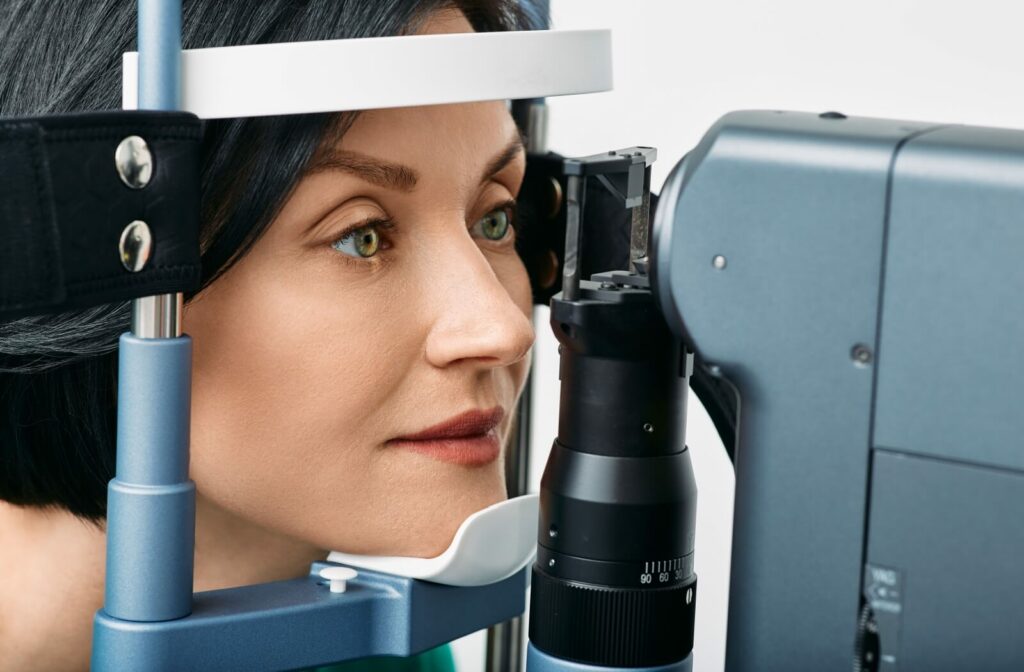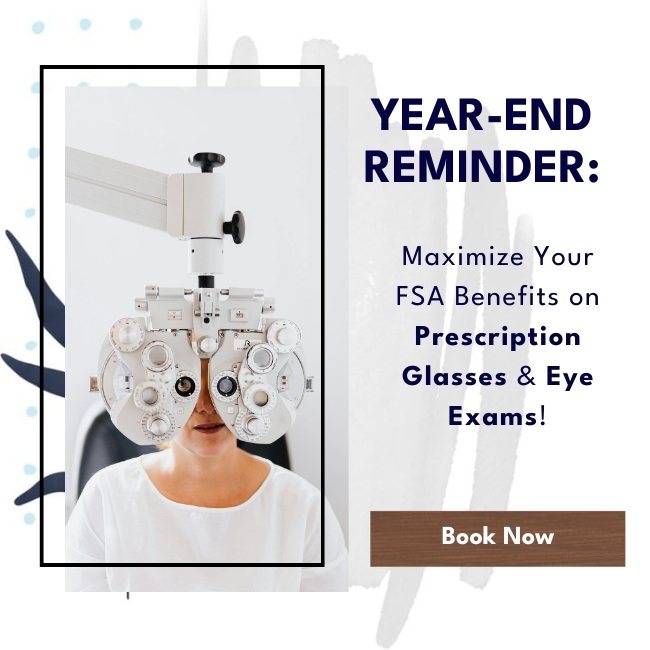It’s crucial not to overlook the importance of our eyes. We may be aware of the need to shield them from sharp objects and wear sunglasses, but there’s more to our eye health that often goes unnoticed until a problem arises.
This is why it is recommended that you get an eye exam regularly instead of waiting for eye diseases or conditions to manifest. Your optometrist can examine the parts of your eye that you cannot see and guide you toward maintaining good eye and vision health.
The duration of an eye exam depends on your specific needs. A comprehensive exam can be completed in under an hour, while an exam may stretch over an hour if additional testing is required. This small fraction of time, dedicated every year or 2, can make a significant difference in preserving your eye health.
How Often Do I Need an Eye Exam?
The frequency of your eye exams primarily depends on your age. Eyes undergo rapid development and changes during our younger years, with conditions like myopia often developing during this period. Past the age of 40, we start seeing age-related conditions affecting our vision, such as presbyopia or age-related macular degeneration.
The American Optometric Association recommends a specific schedule for eye exams that varies with age:
- Infants: The first exam between 6–9 months
- 3–5 years: At least 1 exam before starting school
- 6–17 years: 1 exam every year
- 18–64 years: 1 exam every 2 years
- 65+ years: 1 exam every year
Some medical conditions or lifestyle choices could put you at higher risk for eye issues, such as diabetes or smoking. In such cases, your eye doctor may recommend a different eye exam schedule based on your individual needs.
What Is Included in a Comprehensive Eye Exam?
A comprehensive eye exam involves a range of tests, including a review of your vision and medical history. The length of this exam depends on your eye care needs, and it can be tailored to your unique eye health requirements.
Refraction tests are essential to an eye exam to diagnose how your eye refracts light. This test involves measurements and subjective questions and ultimately determines your prescription for eyeglasses and contact lenses.
Eye Tests for Eye Diseases
Your optometrist might start by assessing specific aspects of your visual functions, including color vision, binocular vision screening, and peripheral vision. This series of tests helps measure your overall eye health and visual acuity.
Glaucoma is a primary concern as you age, especially if it runs in your family. Regular checks through visual field tests, retinal imaging, and optic nerve assessments can help catch early signs of glaucoma.
The curvature of your cornea is another important aspect that needs regular checks. A keratometer can measure corneal astigmatism and detect any surface imperfections.
Contact Lens Exams
Contact lens exams and fittings help promote optimal eye health and comfort for anyone considering switching from glasses to contact lenses. At Eyedeal Eyecare, this process is personalized to address each patient’s unique needs. By focusing on clarity, comfort, and convenience, our approach helps you receive contact lenses that improve vision and fit seamlessly into your daily life.
The journey begins with a comprehensive eye exam that evaluates eye health and determines the necessary prescription. This exam is similar to routine eye exams but with additional steps tailored for contact lenses.
How Are Contact Lens Fittings Different from an Exam?
The fitting process is an essential component. The size and shape of the eyes are analyzed to prescribe contacts fitted for your eyes. Corneal curvature, iris and pupil dimensions, and tear quality are assessed for comfort and functionality.
Once the fitting parameters are established, patients are trained to put in and take out contacts. After they have the motion down, they can properly assess whether the contacts are comfortable and provide clear vision.
Choosing the right contact lenses goes beyond the initial fitting. Follow-up appointments are vital to monitor how well the eyes adjust to the lenses and to address any issues that might arise, such as irritation or discomfort. These appointments enable adjustments in prescription or fit, helping you enjoy long-term comfort and clarity.
What Are Diabetic Eye Exams?
Diabetic eye exams are vital for individuals with diabetes, as they focus on identifying and managing eye conditions that may arise from the disease. At Eyedeal Eyecare, these exams are designed to detect complications like diabetic retinopathy and diabetic macular edema, which can occur when high blood sugar levels damage the blood vessels in the retina.
Regular diabetic eye exams help preserve eye health and maintain clear vision. Diabetes increases the risk of several eye conditions, including glaucoma and cataracts, making it essential to monitor eye health closely.
How Often Should I Have a Diabetic Eye Exam?
Annual eye exams are recommended for those with diabetes to promptly address any developing issues. Eyedeal Eyecare’s comprehensive approach not only helps identify potential problems early but also assists in creating effective strategies to manage and protect vision over time.

Children’s Eye Exams
Early detection of vision problems is vital, as many eye health issues can develop without noticeable symptoms.
Regular eye exams can identify common childhood vision problems such as:
- Myopia (nearsightedness)
- Amblyopia (lazy eye)
- Strabismus (crossed eyes)
Identifying these conditions early allows for timely intervention and management, potentially preventing long-term vision impairment. For myopia, Eyedeal Eyecare offers innovative solutions like MiSight lenses, which are designed to slow the progression of nearsightedness in children.
Schedule Your Next Eye Exam Today
Eye examinations should help you feel confident about your vision. Don’t delay your eye health; book your next eye exam and have one less thing to worry about. Eyedeal Eyecare’s friendly team is your proactive partner in maintaining your eyesight. Schedule your next appointment with us today.




